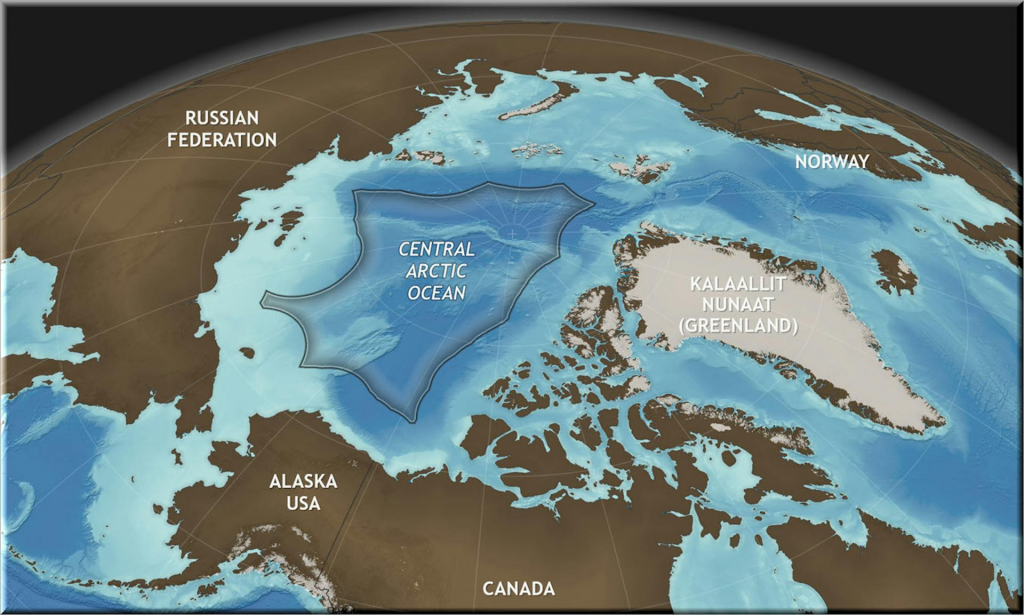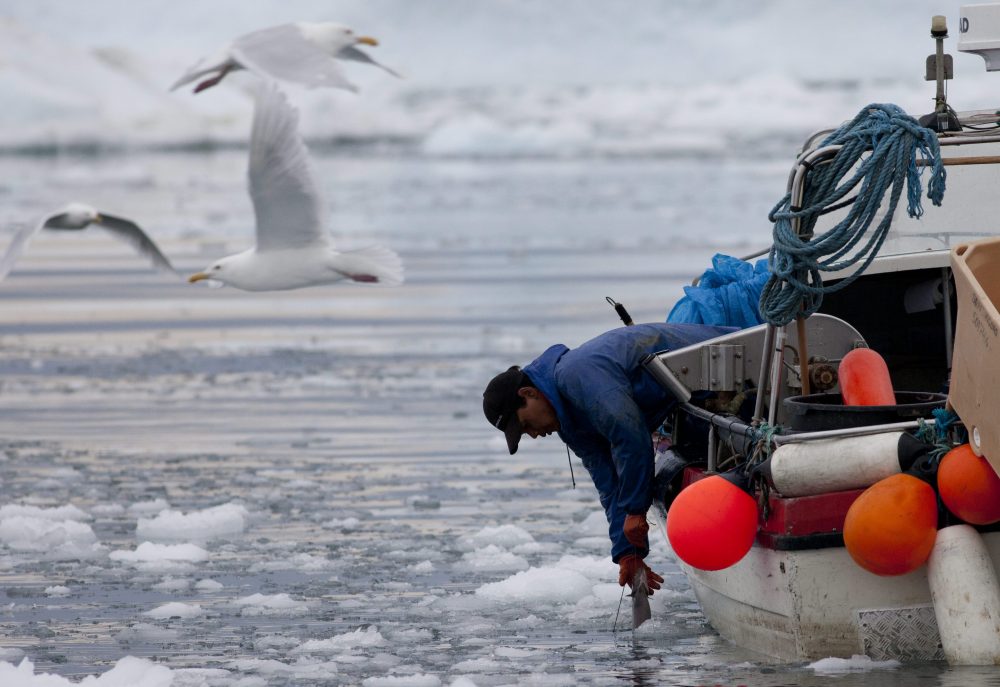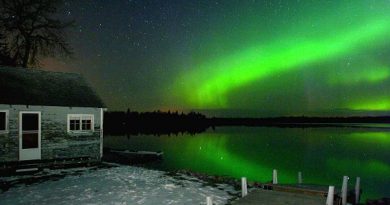Scientists urge global action to prevent industrial activity in Central Arctic Ocean

A coalition of over 1,000 scientists has taken the occasion of this week’s U.N. Ocean Conference in Nice to call for a global agreement that would prevent industrial activities in the Central Arctic Ocean.
The coalition’s letter, released this week, urges governments to take preemptive action to ensure industry doesn’t set up in the region as the ice continues to shrink.
“Types of industrial activity in the region are now being discussed, such as commercial shipping through the high seas, and deep-sea mining on extended continental shelves,” the letter from the Ocean Conservancy coalition said.
“These activities would disrupt Arctic ecosystems and societies, undermining the principles and practices of the Central Arctic Ocean Fisheries Agreement.”
Precautionary approach needed say scientists
The International Agreement to Prevent Unregulated High Seas Fisheries in the Central Arctic Ocean is a legally binding agreement that came into effect in 2021.
Signed by Canada, the E.U., China, Japan, Russia, Iceland, the United States, Norway, South Korea, and Denmark, the Central Arctic Ocean Fisheries Agreement aimed to give scientists the time needed to study the region, which spans approximately 2.8 million square kilometres.
The agreement established a joint research and monitoring program to assess the sustainability of any fish stocks in the area and determine if they could be harvested responsibly.
In this week’s letter, the scientists argue that a similar precautionary approach should be applied to potential activities such as commercial shipping and deep-sea mining the region.

They warn that that such activities could do irreversible damage to the region’s delicate environment and disrupt Indigenous communities in the countries surrounding the ocean, that depend on the environment.
“The Fisheries Agreement set a new standard for collaboration and caution,” said Hilu Tagoona, Senior Arctic Advisor at Oceans North, in a statement put out with Ocean Conservancy.
“The same principles need to apply to any new industrial activities in the region.”
- What it is: A legally binding pact signed in 2018 by 10 countries, including Canada.
- Purpose: prohibits commercial fishing in the high seas of the Central Arctic Ocean to protect a region that has been largely inaccessible and is still poorly understood.
- Why it matters: gives scientists critical time to study the Arctic’s ecosystems and assess the sustainability of fish stocks before any commercial activity can occur.
- The process: gather scientific and Indigenous knowledge on the region’s marine life and ecosystems.
- Current relevance: The agreement, which came into effect in 2021, is now a model for international cooperation in the Arctic. As new industrial activities like deep-sea mining are proposed, scientists this week a re calling for similar precautionary measures..
The warming Arctic has implications worldwide including influencing ocean currents, wind patterns, and weather systems. As sea ice continues to retreat, the scientists fear that rushing to exploit the region’s resources could have far-reaching consequences, from altering global climate patterns to disrupting fragile marine ecosystems.
Global commitment needed: coalition
An international cooperation agreement is the only way to ensure that development in this sensitive region proceeds with caution, guided by both scientific research and Indigenous knowledge, to prevent irreversible damage to the Arctic and the world at large, the scientists said.
The Central Arctic Ocean is the heart of the Arctic,” Dr. Henry Huntington, Ocean Conservancy’s director of science, Arctic & northern waters team, said in a statement.
“Its ecosystems and sea ice are vital to Indigenous communities and help regulate the global climate. With new industries being proposed for this critical sea, it’s essential we allow Indigenous knowledge and science to lead the way.
“Only an international agreement that adopts a precautionary approach can protect this critically important international area.”
The U.N. Ocean Conference runs until June 13.
Comments, tips or story ideas? Contact Eilís at eilis.quinn(at)cbc.ca
Related stories from around the North:
Canada: Arctic predicted to warm more than three times faster than global average:WMO report, CBC News
Norway: Svalbard glacier once survived a warmer climate, The Independent Barents Observer
Russia: Melting permafrost may release industrial pollutants at Arctic sites: study, Eye on the Arctic
United States: Trump’s cuts threaten US polar science after decades of data collection, Blog by Mia Bennett



